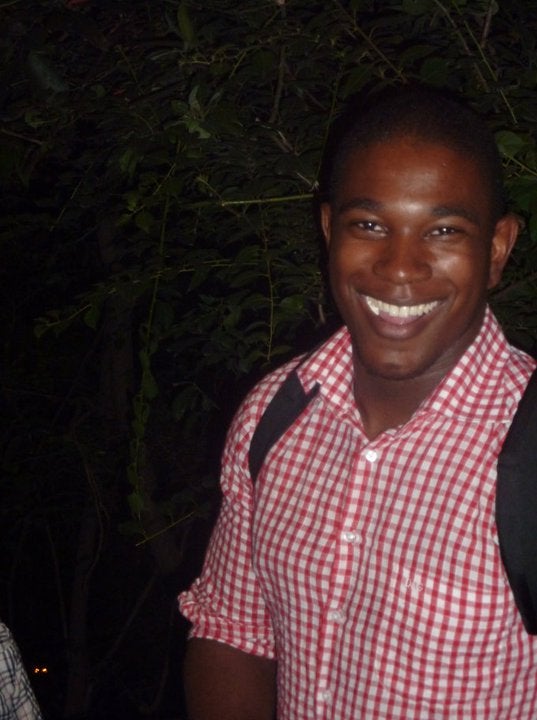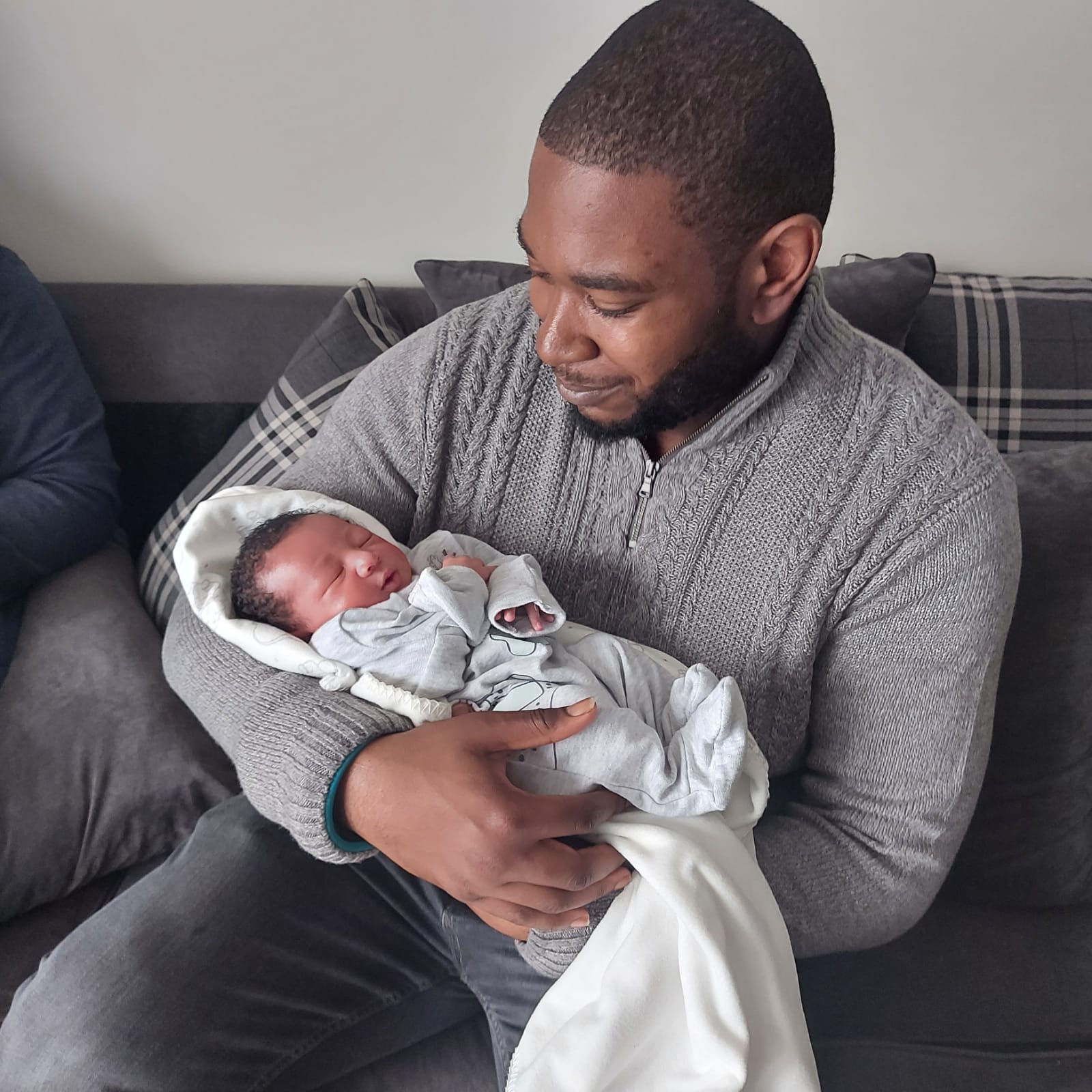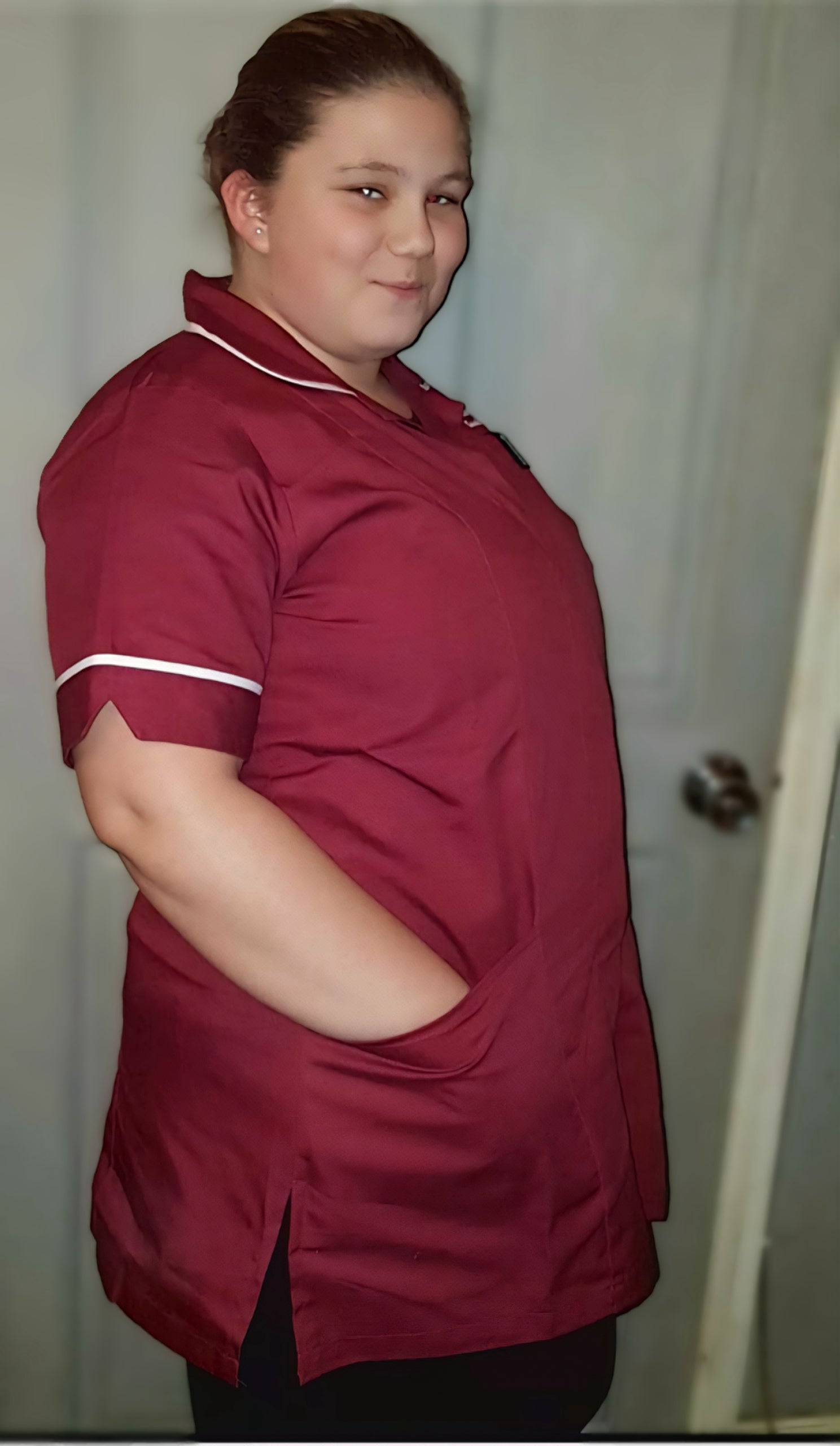Your support helps us to tell the story
From reproductive rights to climate change to Big Tech, The Independent is on the ground when the story is developing. Whether it’s investigating the financials of Elon Musk’s pro-Trump PAC or producing our latest documentary, ‘The A Word’, which shines a light on the American women fighting for reproductive rights, we know how important it is to parse out the facts from the messaging.
At such a critical moment in US history, we need reporters on the ground. Your donation allows us to keep sending journalists to speak to both sides of the story.
The Independent is trusted by Americans across the entire political spectrum. And unlike many other quality news outlets, we choose not to lock Americans out of our reporting and analysis with paywalls. We believe quality journalism should be available to everyone, paid for by those who can afford it.
Your support makes all the difference.Read more
Adrian Francis walked into hospital in June 2023 as a physically healthy young man. Days later, having been left in an “immobile state”, he was dead.
The 33-year-old, who once represented Britain in sprinting, had been reduced to a catatonic state after health workers at Hallam Street Hospital in West Bromwich apparently pinned him down and forcibly gave him antipsychotic medication.
According to a leaked internal review into his death, Adrian was left “terrified and confused”, became incontinent and had to be washed, dressed and fed with a spoon. Eighteen days later, while still at the hospital, his physical health deteriorated so badly that he collapsed and later died.
The review, seen by The Independent, suggested there had been a series of failings by the Black Country Healthcare Foundation Trust, which runs the hospital. His case, the review warned, “illustrates the underlying systemic issues” at the hospital.
Adrian’s family are now demanding answers. But his case is not the only one at the hospital that has raised questions. Three months earlier, 21-year-old Shannon Lee Jordon died following failures, with an inquest into her death hearing that a healthcare worker at the hospital had failed to keep watch over her every 15 minutes.

open image in gallery
Adrian Francis, 33, died in June 2023 (Family Handout)
The concerns come as The Independent reveals a litany of alleged failings by the trust, including multiple patient deaths, alleged sexual assaults on patients by a staff member and patients being locked in isolation for days without being monitored.
Senior doctors have alleged their complaints have been “ignored or covered up” by leaders with medics warning the organisation has a “culture of fear” and “conspiracy of silence” that is leaving patients at risk of further harm.
‘Left in an immobile state’
Adrian, who had paranoid schizophrenia, had been a patient of the Black Country Healthcare Foundation Trust for 13 years before his death. For at least 10 years, he had managed his condition through the use of medication.
However, following the traumatic death of two family members, the internal review found that Mr Francis stopped taking his medication, which led to a deterioration in his mental health. On 9 June 2023, he was admitted to Hallam Street, a 52-bed inpatient adult mental health unit.
According to the report into his death, which was commissioned by the trust and carried out by an external consultancy firm, a decision was made to medicate Mr Francis. When he refused the drug, he was sectioned under the Mental Health Act, pinned down and forcibly given the medication, the report says.
Soon after he was given the medication, signs of an adverse reaction apparently began to show. Eventually his health became so poor that staff noted he was unable to leave his bedroom, the report said. He was unresponsive and incontinent.
Adrian was sent to the nearby A&E twice due to concerns over his physical health, but was discharged back to Hallam Street both times. Then, on 26 June, he collapsed on the ward. He was rushed to Sandwell Hospital, where he died.
The review concluded Adrian died of a pulmonary embolism, but an inquest will ultimately determine the cause of death.

open image in gallery
Adrian Francis with his nephew (Adrian Francis)
The report, which was not made public, said: “Adrian came onto Abbey Ward – a young man of 33 years – he lived independently and took pride in his appearance. He was reduced to being unable to walk, being incontinent of urine, having to be washed and dressed, and fed by a spoon.”
‘Staff don’t know what they’re doing’
Reviewers criticised staff’s poor record keeping and said swift action was not taken when the alleged side effects from Adrian’s medication became more apparent.
“There should not have been this degree of confusion and delay… for detecting the side effects of medication,” the report said.
“We might never know exactly which syndrome or disorder Adrian was suffering from – but it is certain he was suffering from a drug induced reaction and that he received no adequate care and treatment for this. Any individual receiving inpatient care has the right to expect better.”
A message quoted in the report, sent by Adrian to his father while he was still in the ward, said: “There are too many new staff who don’t know what they are doing”.
Adrian’s family, who await his inquest in November, told The Independent that the trust had a “dismissive attitude” following his death.
One of his family members, a GP, Dr Raffaella Poggi, claimed the trust made everything difficult: “We have asked to talk to directors and to commissioners, but they have declined. They have a dismissive attitude. What happened to Adrian is what happens when you aren’t coordinating care.”
Adrian’s brother Travis has since stopped working as a radiographer for the NHS because of what happened: ”It’s been two years, but there is still anger. There’s grief. It shouldn’t happen. This should have been so routine.”
‘She might still be alive today’
The trust has already faced scrutiny over the death of another patient.
Three months earlier, Shannon Lee Jordan, a 21-year-old care worker whose mental health had deteriorated while looking after elderly patients during the Covid pandemic, died while under the care Hallam Street Hospital.

open image in gallery
Shannon Lee Jordan (Family Handout)
During an inquest into her death in October 2025, evidence showed she was known to be high risk but, within hours of being downgraded from one-to-one observations to 15-minute checks, she had died. An inquest ruled she died from a ligature strangulation.
At the inquest, an agency healthcare assistant named Uchechukwu Umeagukw admitted he did not carry out some of the 15-minute checks, meaning Shannon was not seen for nearly an hour.
“I know maybe if I had checked on her, she might still be alive today,” he told the inquest.
The jury found this failure – and the fact he had falsely written in her notes that he had carried out the checks – possibly contributed to her death. The worker was investigated by police but was not charged. He told the inquest he was no longer working in healthcare.
Shannon’s mother Nicola Lee Jordan said she was disgusted with the care her daughter had received, even while on one-to-one observations. In photos shared with The Independent staff appear to be sleeping when they were supposed to be monitoring Shannon.
“My daughter cared about the elderly people that she looked after. That’s why she broke down. These staff just come to pick up a wage package. They don’t care,” Ms Jordon said.
The family are now considering launching legal action against the trust.
Michael Portmann-Hann, whose legal firm FBC Manby Bowdler represents Adrian and Shannon’s families, said they had seen a recent significant increase in the number of cases from the trust.
“It’s hard not to be concerned. The investigation reports are damning, and I am unsure if the changes they are making are enough.”
The fresh concerns over Hallam Street Hospital prompted an inspection by the Care Quality Commission last month. The report is yet to be published.

open image in gallery
A spokesperson for the trust said it has ‘broad and significant challenges’ (PA) (PA Archive)
Meanwhile, according to sources, in July this year, a young man died while under the care of different hospital run by the trust – Macarthur Centre in West Bromwich. The trust declined to comment.
A routine safety audit of that centre also revealed four patients were left in an isolation room for 90 hours without monitoring, reviews, or medication, the trust confirmed.
A fourth patient is also understood to have died while at the trust’s Bushey Fields hospital in Dudley. His death will be scrutinised by a coroner in an inquest later this month.
‘Culture of fear’
The trust is also facing allegations of sexual assault on two women by an employee in the Dorothy Pattison in-patient unit in Walsall. Police have confirmed a man was arrested on allegations of sexual assault. He has been released on bail and suspended from his role while the police investigation is ongoing.
In January 2023, former director Mark Weaver wrote to the trust while working there, alleging a “closed culture” and warning leaders about recruitment and retention of nursing staff, as well as issues with morale, violence and aggression on the wards.
Shortly after the letter, Dr Weaver was suspended from his medical directorship following allegations about his conduct. He has taken the trust to an employment tribunal, claiming victimisation for whistleblowing and racial discrimination. The trust has denied the claims and the outcome is expected shortly.
The trust’s doctors later held a vote of no confidence in their senior management team. They also reiterated concerns that the trust was not acting in the best interest of patients.
NHS England has been aware of the issues at the Black Country Healthcare Trust throughout. In July last year it visited the trust and forced it to sign up to an improvement notice. Among the slew of issues was a need to restore confidence in freedom to speak up.
The notice warned: “There remains a fear of raising concerns amongst some staff, showing further improvements are required to develop trust, psychological safety and confidence.”
But medics say concerns have continued and, in August 2025, they raised further allegations at a meeting between doctors and the trust governors and non-executive directors.
According to minutes of the meeting, seen by The Independent, medics alleged a “culture of fear preventing open communication” while staff said they feared suffering consequences for raising safety concerns.
One medic was quoted as saying that, after decades at the trust, it was deeply distressing to see a deterioration in patient care and organisational standards.
Another doctor stressed the deteriorating morale within the trust, described a “conspiracy of silence” around the no-confidence vote in leaders and warned of further risk of harm to patients.
Marsha Foster, chief executive of the trust, said: “These are serious and sensitive matters, and our thoughts remain with the individuals and families affected.”
It said it would not be appropriate to comment on individual cases while legal, coroner, or employment processes are ongoing.
However, she said the trust had made significant and lasting improvements to patient safety, including introducing electronic observation systems, improving clinical supervision and training and reducing reliance on temporary staff.
She said that 97 per cent of its safety incidents last year were graded low or no harm, and that when a serious incident occurs, it meets with families to listen and ensure independent scrutiny of the care.
A spokesperson for NHSE in the Midlands said: “Black Country Healthcare NHS Foundation Trust has some very broad and significant challenges, which require a higher level of scrutiny and support through our national oversight framework.”
A CQC spokesperson said it carried out an inspection in October after concerns were raised and that the findings will be published in due course.
